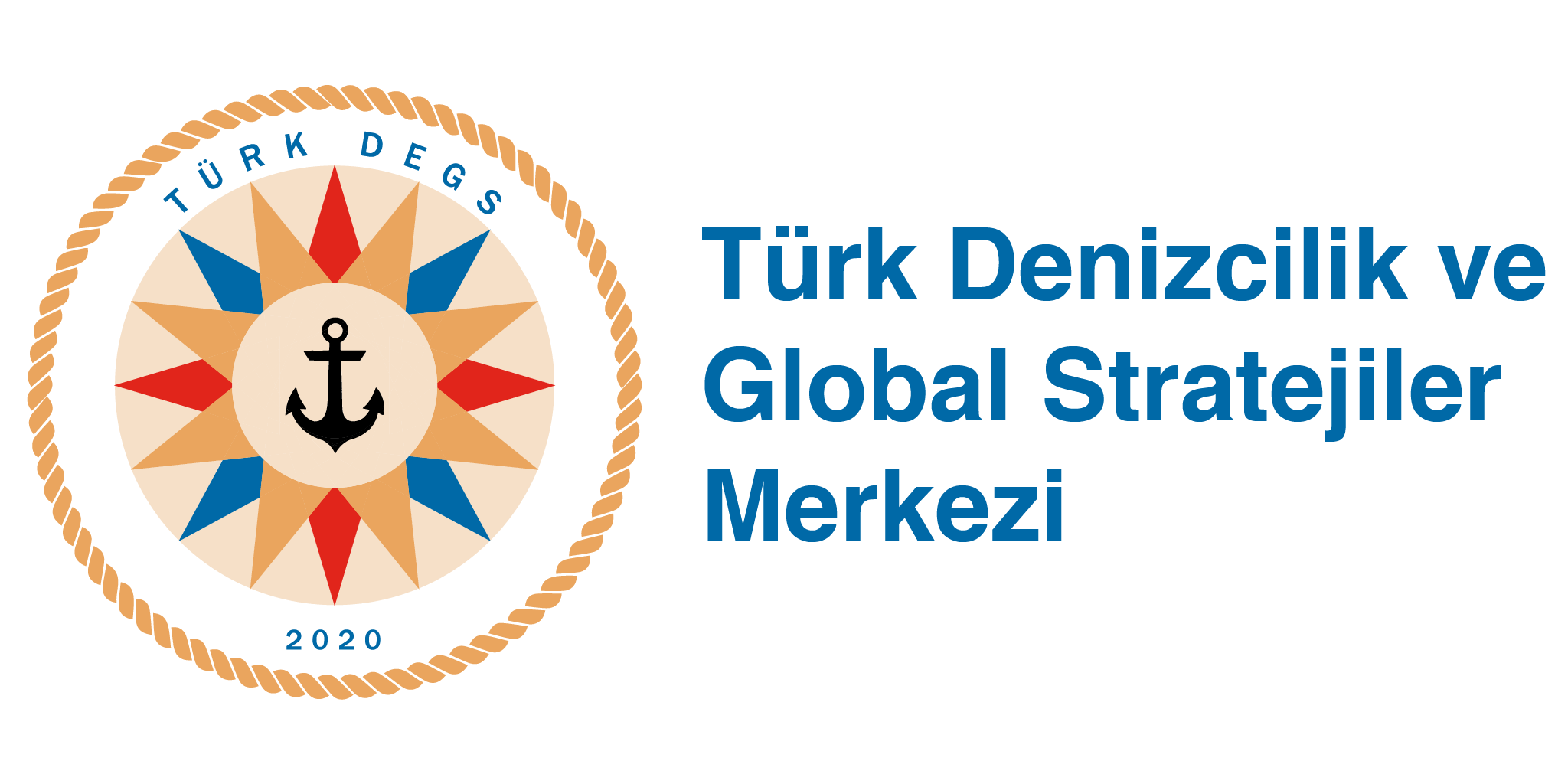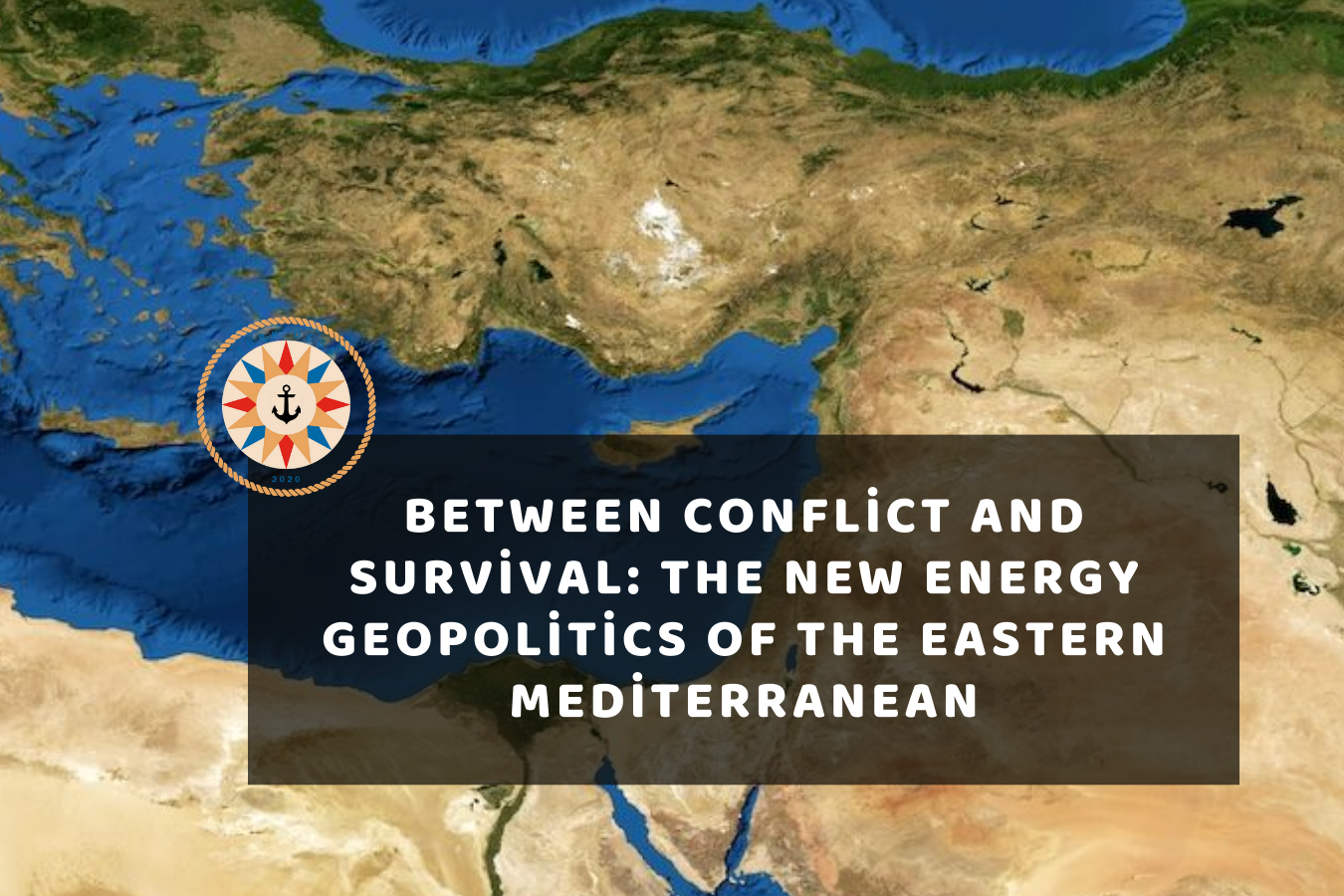Between Conflict and Survival: The New Energy Geopolitics of the Eastern Mediterranean
The Eastern Mediterranean has been subject to geopolitical conflicts triggered by energy security concerns or other security aspirations promoted through claims on existing or assumed energy reserves. Encouraged by the discovery of offshore hydrocarbons in the region 15 years ago, some littoral states have designed ambitious projects aimed at developing natural gas both for domestic consumption and for export to the European Union market. The prospect of discovering new energy reserves pushed neighbouring countries to delimitate their Economic Exclusive Zones. Following the delimitation agreements, most of the regional countries have granted licenses for natural gas exploration and drilling and in some cases signed highly lucrative agreements. Their declared maritime zones, however, overlap, provoking tensions with their neighbours, thereby complicating the development of the reserves. At the same time, frequent maritime safety broadcasts refer to endless military exercises, harassment of energy exploration activities and serious frictions among the littoral states that have sometimes nearly escalated into high scale conflicts.
In November 2019, Turkey signed a bilateral agreement, an official Memorandum of Understanding (MoU), with the internationally recognised Libyan Government of National Accord in Tripoli on the Turkish–Libyan maritime boundaries. In exchange, Libya received a security pact involving military trainers and advisers as well as deliveries of military equipment by Turkey. After a decade of abortive efforts to conclude maritime boundary delimitation agreements with Egypt and Libya that would challenge Athens’ assignment of large maritime jurisdiction areas to Greek islands and Cyprus, Ankara had achieved its objective. Henceforth, Turkey can now at least invoke a single agreement in its competitions with antagonistic energy interstate projects in the region which do not include Turkey. As this agreement contradicts the Greek and Cypriot claims to their maritime rights in the region, it further aggravated the already burdened Turkey–Cyprus–Greece relationship. In obvious response to the Turkey–Libya agreement, in June 2020, Italy and Greece agreed to delimitate their maritime zones, including their future Economic Exclusive Zone. In the same context, in August of 2020, after 15 years of negotiations, Greece and Egypt signed an agreement in Cairo, delimiting partially their maritime boundaries in the Eastern Mediterranean.
Only a few days after the signing of the Greece–Egypt Agreement, Greece and Turkey came close to a serious armed clash. In July 2020, Turkey had announced plans for a seismic survey south and east of the Greek island of Kastellorizo. The research vessel Oruç Reis issued a Navtex[1] covering parts of the Greek, Egyptian and Cypriot waters, prompting strong reactions both in Greece and internationally. Consequently, in August, Turkey dispatched its naval forces to the region around Kastellorizo, and Turkish armed jets conducted low overflights and dogfights with their Greek counterparts above the island. The Greek armed forces were placed on high alert, and as a result the two countries were for several months locked in a stiff standoff the likes of which the region had not witnessed in 20 years. The crisis nearly ended up in a war when a Greek and Turkish frigate collided with each other, precipitating the worst confrontation between the two NATO allies since the Imia/Kardak crisis of 1996. Consequently, Athens threatened to invoke the Mutual Defence Clause (Article 42) of the EU’s Lisbon Treaty for military assistance. Once again, a possible confrontation threatened to destabilise NATO’s southeast flank for good and escalate to a multinational conflict, embroiling the European Union, the United States and possibly other countries.
In November 2019, the same month the Turkey-Libya MoU was signed, Egypt, Cyprus, Greece, Israel, Italy, Jordan, and the Palestinian Authority decided to establish the Eastern Mediterranean Gas Forum. This forum was intended to serve as the umbrella for cooperation and dialogue regarding the development of gas resources in the region. While energy lies at the heart of the forum, there are also broader geostrategic procedures that led to its establishment, reflecting the common perceptions of the countries involved of the importance of the Eastern Mediterranean to their national security. Although officially the Gas Forum is open to other countries, the meeting in Cairo did not include delegates from Turkey, Lebanon, or Syria. Their absence is not surprising, given disputes surrounding gas fields between Turkey and Cyprus and between Israel and Lebanon. Nonetheless, this illustrates the limitations of cooperation in the Eastern Mediterranean, where players who were excluded from the forum have an interest in working against the development of closer ties between the member states of the forum.
However, Ankara’s muscle-flexing goes beyond Cyprus and energy resources. Rather, it must be understood within the broader arc of Turkey’s efforts to renegotiate its relations with the West and its neighbours so as to reflect the influence it feels it deserves. A striking example is the Turkish Petroleum Corporation’s announcement to conduct seismic research in an area stretching from the south of Rhodes to beyond Kastellorizo within Greek territorial waters. This particular region, however, has no proven energy resources and has not been mapped out by the big energy companies as an area of interest. Such Turkish assertiveness, aimed at questioning Greek sovereignty in a very delicate part of the Eastern Mediterranean that Ankara needs, seeks to assert its future exclusive economic zone claims.
Thus, it was not the discovery of new energy resources that has enabled or facilitated multilateral regional political and defence cooperation, but the very opposite. The various forms of cooperation or strategic partnerships came about for other reasons; the energy dimension either was added later or was utilized in order to dress up the real nature of the rapprochement. Similarly, both the escalation of regional ethnic and political conflicts and the establishment of new alliances in the region have little to do with energy resources. Rather, they have occurred after the termination of the Israel-Turkey strategic partnership, and the overthrow of President Morsi in Egypt, per the motto “the enemy of my enemy is my friend”.
Regionally, energy cooperation has also been unable to achieve political goals or to resolve differences or conflicts between two or more states. This has recently been exemplified in the recent case of Israel and Lebanon, who in October 2022 established a permanent maritime boundary with a view to exploiting the subsumed energy reserves in the area. The border between both countries has been under UN control since 1978. Previously, the two countries have avoided direct or even indirect negotiations to settle the maritime borders, because they have been officially at war since Israel declared independence in 1948, and Lebanon, as a member of the Arab League, does not recognise Israel. Beirut has also claimed that the bilateral agreement on the demarcation of maritime borders, signed in 2010 between Cyprus and Israel and ratified a year later, conflicts with the UNCLOS and violates Lebanese sovereignty and economic rights. As has already been mentioned, Lebanon signed in 2007 a first delimitation of its EEZ with Cyprus, but the Lebanese Parliament did not ratify this agreement, due to political pressure coming from Turkey demanding the northern occupied part of Cyprus to be included in any agreement concluded by Cyprus.
Furthermore, Lebanon was pursuing at the time a free trade agreement with Turkey, which was actually signed at the end of November 2010. As part of this cumbersome equation, both Lebanon and Israel claim a maritime area of some 1.400 square kilometres, which is potentially rich in hydrocarbons. The area in dispute lies in a triangle whose western apex is the Israeli-Lebanese land border and seaward base is Israel and Cyprus’ EEZ. The point of friction arises from the agreement Cyprus and Israel entered into, which utilized the same point as in the Cyprus-Lebanon agreement as the northern terminus of the Israel-Cyprus EEZ boundary line (Stergiou- Karagianni 2019: 85-86).
Some have had the naive idea that the proposed East Med pipeline, designed to bring gas from the region to Europe via Greece, could become a peace incentive. Apart from the fact that the real prospects for the pipeline are gloomy for economic and technical reasons[2], the notion of “peace pipelines” has nothing to do with reality, despite attempts by various governments to promote them. Another commonly held perception is that the East Med gas deposits could drastically alter the EU’s energy security in the short to medium term. Apart from the Tamar and Zohr fields, the gas of the Eastern Mediterranean remains so far largely undeveloped. Exploration proceeds slowly, because there is no available export route for the large volumes of gas that could be produced. Given that the gas exports from the area, in the best-case scenario, would reach the amount of 30 or 40 bcm in the next years and that the EU market consumes approximately 400 bcm/y, this perception is rather misguided. (Stergiou and Karagianni 2019).
Yet, while frictions among the Eastern Mediterranean countries about maritime zones and continental shelf claims abounded in recent years, nearly provoking large-scale conflicts, the impact of the climate crisis on these countries has been extreme. The region is already experiencing dramatic changes and hardships attributable to climate change, and it is particularly vulnerable to the interconnected challenges stemming from climate change and environmental degradation. Apart from the heavy storms and the mega fires, additional reasons for concern include sea-level rise-related risks, land and marine biodiversity losses, risks related to drought, wildfire, alterations of water cycle, endangered food production and health risks in both urban and rural settlements from heat and altered disease vectors. The UN Intergovernmental Panel on Climate Change has therefore labelled the region as a ‘‘climate change hotspot’’, expecting the warming across the Mediterranean to be about 20 percent higher than global averages in the decades to come (United Nations 2021).
Today, the region is increasingly hit with devastating heatwaves, which in turn trigger water shortages, loss of biodiversity and risks to food production. According to the IPCC’s Sixth Assessment Report, an increase of 10-20 days per year of maximum daily temperature exceeding 35°C, a typical, critical threshold for crop productivity and triggering analogous increase in agricultural, ecological and hydrological droughts is expected, by the mid-century in the Mediterranean areas. Moreover, streamflow droughts and fire weather conditions are projected to become more severe and persistent in the region. Mediterranean summer climate is known to be affected by the South Asian summer monsoon through the monsoon-desert teleconnection. In future, rainfall is expected to increase not only over the South Asian area but also over the East Asian summer monsoon and equatorial Atlantic regions, affecting the Mediterranean climate in the future. Sea level rises are expected to exceed one metre in the next decades, impacting one third of the population in the region. The atmospheric circulation changes in the Mediterranean in the future could impact the marine system as well. Other challenges the Eastern Mediterranean will be facing include energy needs, with peaks during summer months; water shortages, mostly dealt with by the desalination process and reuse of sewage water; and forest fires during warm summers, air quality and extreme precipitation events. All of these are expected to hit the most vulnerable groups, i.e. the poor, the elderly, those working outside or with pre-existing conditions, and immigrants.
In sum, the Mediterranean’s more than half-a-billion inhabitants face highly interconnected climate risks. The lack of resources caused by droughts leads to mass migration to the cities, civil wars, crossing borders to other countries, ethnic conflicts and tensions. Even before the Arab Spring turbulences, long droughts contributed to significant population displacements and growing political discontent. For example, although the causes of the Syria Civil War are similar with those of other Middle East countries shaken by political uprisings in the last decade, the chain of events that led to the outbreak of civil war can be traced to the five years of drought from 2006 to 2011, which started a wave of migration to the cities provoking tensions there (Rabinowitz 2020).
One therefore wonders why the countries of the region are involved in a geopolitical competition to secure control of fossil fuels or to extend their Economic Exclusive Zones at the expense of their neighbours, instead of prioritising the fight against the common existential threat. The Eastern Mediterranean countries are relatively far behind in terms of realising their capacity for renewable energy development despite their high potential in solar and wind energy supply and some recent initiatives towards creating an energy mix based on low carbon technologies. Some years ago, in line with the EU climate and energy policies, some East Med countries initiated ambitious energy programs aimed at differentiating their energy mix. In December 2021, Israel, the only country in the region that has benefited so far from the ‘‘gas discoveries windfall’’, decided to halt gas exploration licenses to focus on developing renewables, green electricity, on energy efficiency and on renewable energies. However, the Russia-Ukraine war rekindled debate about this course, precipitating a 180-degree turn in the country’s energy attitudes with renewables retreating in favour of more robust, if less politically correct, fossil energy sources (Stergiou 2023).
Although the Russia-Ukraine war proved that the hydrocarbons-centred system is bankrupt and completely unreliable in energy security terms, the exploration revival in the region will gather pace in 2024. Operators collaborating with Cyprus, Greece, Turkey, Egypt and perhaps Israel are taking advantage of government policy shifts by increasing drilling activities. Onshore, the primary focus will be gas deposits near existing infrastructure, primarily small tie-backs. Offshore, most wells will target gas prospects in mature basins, but high-impact wells in frontier plays are still expected (Wood Mackenzie 2023)
At the same time, the Mediterranean region has a vast and untapped renewable energy potential, in both solar and wind, which could boost the European Union’s energy security more efficiently and foster its Green Deal without provoking geopolitical tensions among the regional countries. With solar and wind power being the two dominant forms, and electricity interconnections throughout Europe to have come under the spotlight, the unregulated Eastern Mediterranean region could be vital. It exhibits the biggest renewable energy generation potential throughout Europe at a time that EU tries to implement its Green Deal strategy. The fight against common existential, natural, environmental threats, which are also expected to trigger a mass migration wave towards Europe through Turkey and Greece, will become sooner or later a matter of survival. Cooperation will not be a choice but a necessity in order to survive. The sooner the regional actors realise this, the better they will address their impeding natural disasters. Anything else is, quite literally, just an attempt to resist the future (Stergiou 2022).
References
Stergiou Andreas and Marika Karagianni (2019), Does Energy Cause Ethnic War? East Mediterranean and Caspian Sea Natural Gas and Regional Conflicts. Newcastle upon Tyne – United Kingdom: Cambridge Scholars Publishing.
Stergiou Andreas (2022). The Greek–Turkish Maritime Dispute. Resisting the Future. Switzerland AG: Springer Nature.
Stergiou, Andreas (2023). Eastern Mediterranean energy geopolitics revisited: Green Economy instead of conflict. Journal of Balkan and Near Eastern Studies, vol. 24, issue 4, pp. 604-625.
Wood Mackenzie (2023). Continental Europe upstream: 4 things to look for in 2024. Insight (December 2023).
United Nations (2021). Intergovernmental panel on climate change 2021.



